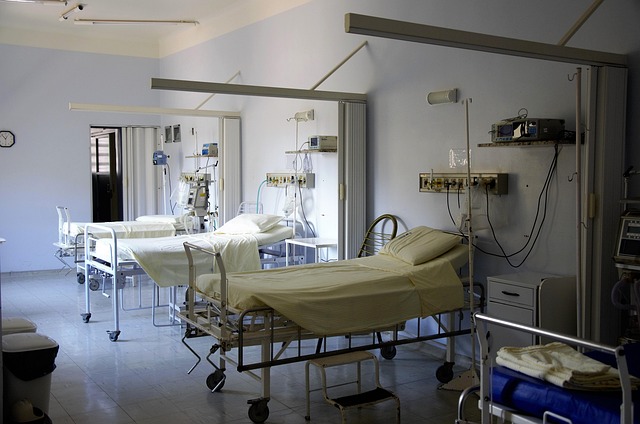Ovarian surgery, often paired with IVF using donor eggs, offers hope for fertility challenges. Success rates vary based on ovarian damage and patient factors. Comprehensive consultation is crucial for understanding individual prospects and tailoring treatment plans. Analyzing clinical data shows promising outcomes, with key influences including donor egg quality, recipient age, and medical team expertise. Optimizing success involves selecting healthy donor eggs, precise timing, ideal growth environment, regular monitoring, and advanced techniques like PGT.
“After ovarian surgery, exploring fertile options is a significant step for many. This article delves into the success rates of IVF using donor eggs as a post-surgery fertility treatment. We’ll explore how surgical impacts on fertility can be mitigated through this method, dissecting relevant data and identifying key factors affecting outcomes. Understanding these elements is crucial for optimizing chances of successful pregnancy in individuals navigating fertility challenges after ovarian surgery.”
Understanding Ovarian Surgery and Its Impact on Fertility
Ovarian surgery, a procedure aimed at correcting structural issues or addressing conditions affecting the ovaries, is an essential step for some individuals seeking fertility treatments. This operation can be life-changing, especially when coupled with in vitro fertilization (IVF). The impact of ovarian surgery on fertility is multifaceted; it may restore ovulatory function, improve egg quality, and enhance overall reproductive health. However, the success rates of IVF using donor eggs after such surgeries vary based on several factors, including the extent of damage to the ovaries and individual patient characteristics.
Understanding the specific outcomes associated with this combination of treatments is crucial for patients considering fertility options. Post-surgery, the body’s ability to produce healthy eggs may differ, influencing the viability of IVF using donor eggs. Therefore, a comprehensive consultation with medical professionals is vital to assess individual prospects and tailor treatment plans accordingly.
The Role of Donor Eggs in IVF After Ovarian Surgery
After ovarian surgery, where the ovary’s ability to produce eggs is compromised, donor eggs play a pivotal role in fertility treatments. In vitro fertilization (IVF) using donor eggs offers a promising avenue for couples facing fertility challenges due to ovary-related issues. This approach is particularly significant as it bypasses the direct reliance on the patient’s own oocytes, which may be limited or non-existent post-surgery.
Donor eggs provide a robust solution, ensuring a consistent supply of high-quality gametes for IVF procedures. The success rates of IVF with donor eggs after ovarian surgery can be encouraging, offering hope to many couples. This alternative allows for the creation of embryos using a woman’s own genetic material but with the added benefit of optimal egg quality, which is crucial for successful fertilization and pregnancy.
Success Rates: Analyzing the Data
When exploring the success rates of IVF using donor eggs post-ovarian surgery, it’s crucial to analyze available data from clinical studies and real-world practices. While individual outcomes can vary greatly, aggregate statistics provide valuable insights into the general effectiveness of this approach for fertility treatment after ovarian surgery. Research consistently shows promising results, with successful pregnancies achieved in a significant portion of cases.
These success rates often express the percentage of treated cycles resulting in pregnancy or live births, offering a clear picture of the overall efficacy. Factors influencing these statistics include patient characteristics, the quality and source of donor eggs, and the expertise of the medical team handling the IVF procedure. Understanding these variables helps patients make informed decisions about their fertility journey, especially when considering advanced reproductive technologies like IVF with donor eggs after ovarian surgery.
Factors Affecting Outcomes and Optimizing Chances of Success
The success rates of in vitro fertilization (IVF) using donor eggs after ovarian surgery can be influenced by several factors. One key consideration is the quality and health of the donor eggs, as this significantly impacts fertilization and embryo development. Additionally, the age of both the recipient and the donor plays a crucial role; younger individuals tend to have better outcomes due to higher egg quality and fewer genetic mutations.
Optimizing chances of success in IVF with donor eggs post-ovarian surgery involves careful management of the entire process. This includes thorough assessment and selection of suitable donor eggs, precise timing of fertilization and embryo transfer, and creating an optimal environment for embryonic growth. Furthermore, regular monitoring throughout the treatment ensures any potential issues are addressed promptly. Advanced techniques such as pre-implantation genetic testing (PGT) can also enhance success rates by identifying healthy embryos, thereby improving overall fertility treatment after ovarian surgery outcomes.
For individuals navigating fertility challenges post-ovarian surgery, utilizing donor eggs in IVF procedures offers a promising path. While success rates vary, extensive data analysis reveals encouraging outcomes. By understanding the factors influencing these results and implementing strategies to optimize fertility, individuals can make informed decisions, enhancing their chances of achieving successful pregnancies through this advanced fertility treatment after ovarian surgery.
